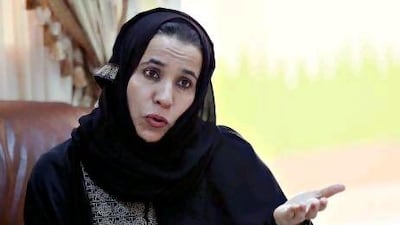Scrapping plans for a federal health authority to take over from the Ministry of Health was the right decision, health officials and FNC members said yesterday.
The rethink, announced last week, will allow the ministry to concentrate on solving problems such as staff shortages and poorly equipped facilities, and to hire and train more Emirati staff.
Dr Yasser Isa Al Nuaimi, the director of Ras Al Khaimah health ministry, said: "I was against it from the beginning, because we already have a system in place."
Dr Mohammed Abdullah Bin Saeed, the director of Fujairah Medical District, said: "Instead of focusing on a new system, let us improve the system that already exists."
Hospitals have long suffered staff shortages and a lack of equipment, particularly in the northern emirates, said Sheikha Eissa Al Ari, from Umm Al Qaiwain, the only woman elected to the FNC.
Umm Al Qaiwain Hospital's maternity ward, the only one in the emirate at the time, was closed for maintenance for several months in 2010.
"Our hospitals are suffering, and we need to change," said Ms Al Ari. "Our hospitals, at least, those in the Northern emirates, are not well equipped.
"You want to know what problems we have? Let me rephrase that. The question should be, 'what problems does the medical sector here not have?'"
The ministry is already opening new hospitals across the northern emirates. In Ras Al Khaimah, the 248-bed Sheikh Khalifa Specialist Hospital opens this year, as will new hospitals in Sharjah, Fujairah and Ajman.
All 15 ministry-run hospitals and 64 healthcare centres should benefit from the release of the money that was to be spent on setting up the federal authority. The ministry's budget has also been increased from Dh2.3 billion to Dh3bn.
Dr Saeed said the system in Fujairah still had weaknesses despite improvements elsewhere, and changing the structure was not enough. "What we need is a better quality of service," he said.
Ms Al Ari described a recent incident when a child aged 4 was brought in to a hospital emergency department with a bloated stomach. The doctor checked him out and sent him home after diagnosing wind.
"That same night, he was taken to hospital in Dubai with kidney failure, which was caused by cancer."
Similar cases happened every week in Umm Al Qaiwain, she said.
"In the North, we should benefit from the advancements made in Abu Dhabi and Dubai. And we do hope that. I'm going to do my best."

